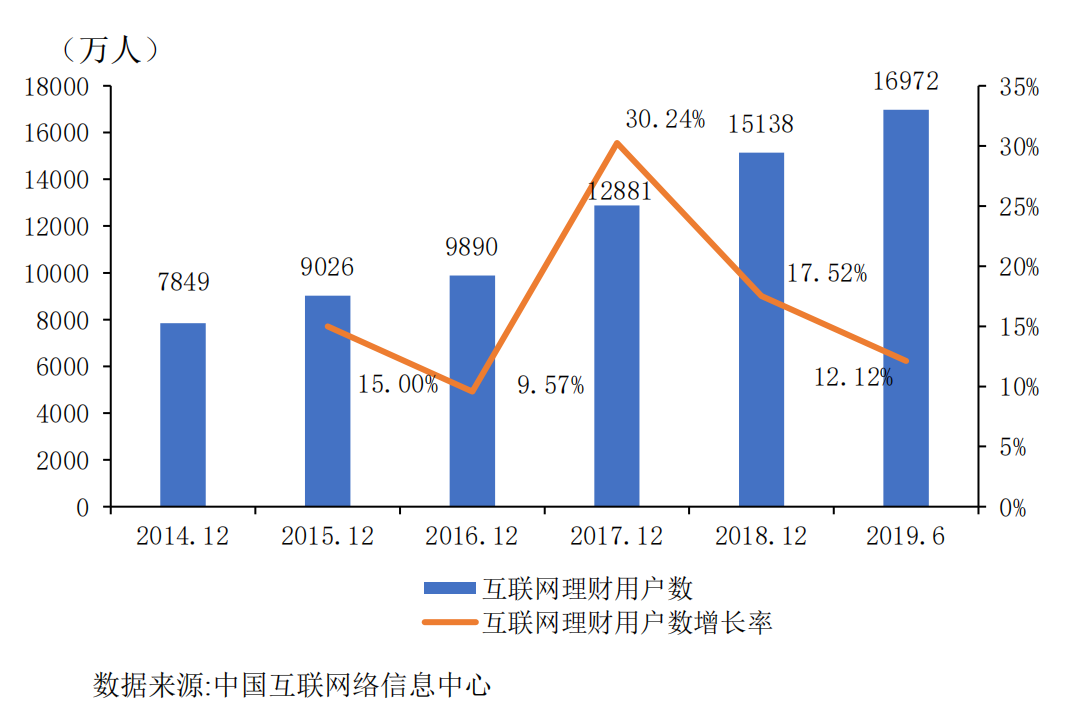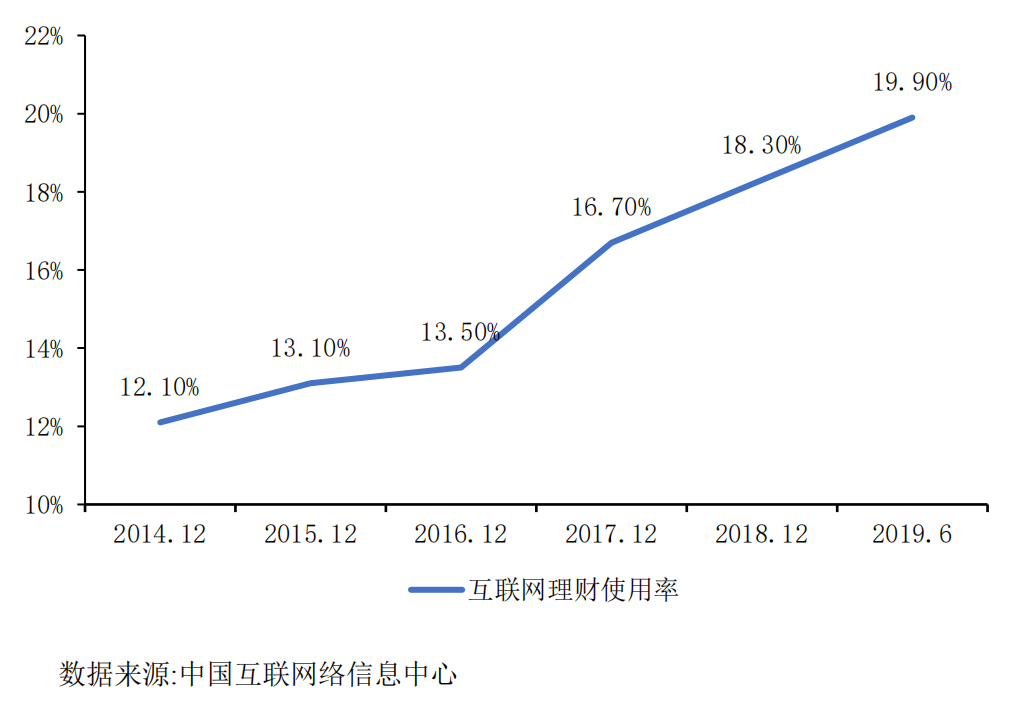Internet financial management is the general trend.
On September 4, 2020, the School of Finance of Renmin University of China and the Ant Group Research Institute released the “Internet Financial Management and Consumption Upgrade Research Report” (hereinafter referred to as the “Financial Management Report”). The report shows that during the two years from August 31, 2017 to July 31, 2019, the annual growth rate of “basic people” in third-tier and lower cities and rural areas was higher than that of first- and second-tier cities, and Internet wealth management products developed rapidly.
Data from the China Internet Network Information Center shows that as of June 2019, the number of Internet users purchasing Internet wealth management products in my country reached 169 million (Figure 1-1), accounting for 19.9% of the country’s Internet users (Figure 1-2). Among them, the number of financial management of “small town youth” in third-tier and lower cities and rural areas increased by 14.13% annually, higher than the negative growth of 3.34% for urban youth.
Figure 1-1 The number and growth rate of Internet wealth management users in China from 2014 to 2019
Figure 1-2 Utilization rate of Internet wealth management users in China from 2014 to 2019
Compared with young people in first-tier cities, young people in small towns have more time and relatively less pressure, and their financial needs have grown with the popularity and development of the Internet. As an important supplement to traditional financial management, Internet financial management has the advantages of lower transaction thresholds, higher financial availability, higher transparency, and more convenient transaction operations, which can meet the personalized and diversified needs of residents for financial products to a greater extent. Effectively encourage the sinking population to participate in the wealth management market, and achieve financial inclusion.
The “Financial Management Report” shows that the proportion of sinking people among active wealth management users has increased significantly, and the proportion of people who have had financial management behaviors in agriculture is higher than that of urban people (Table 1-

